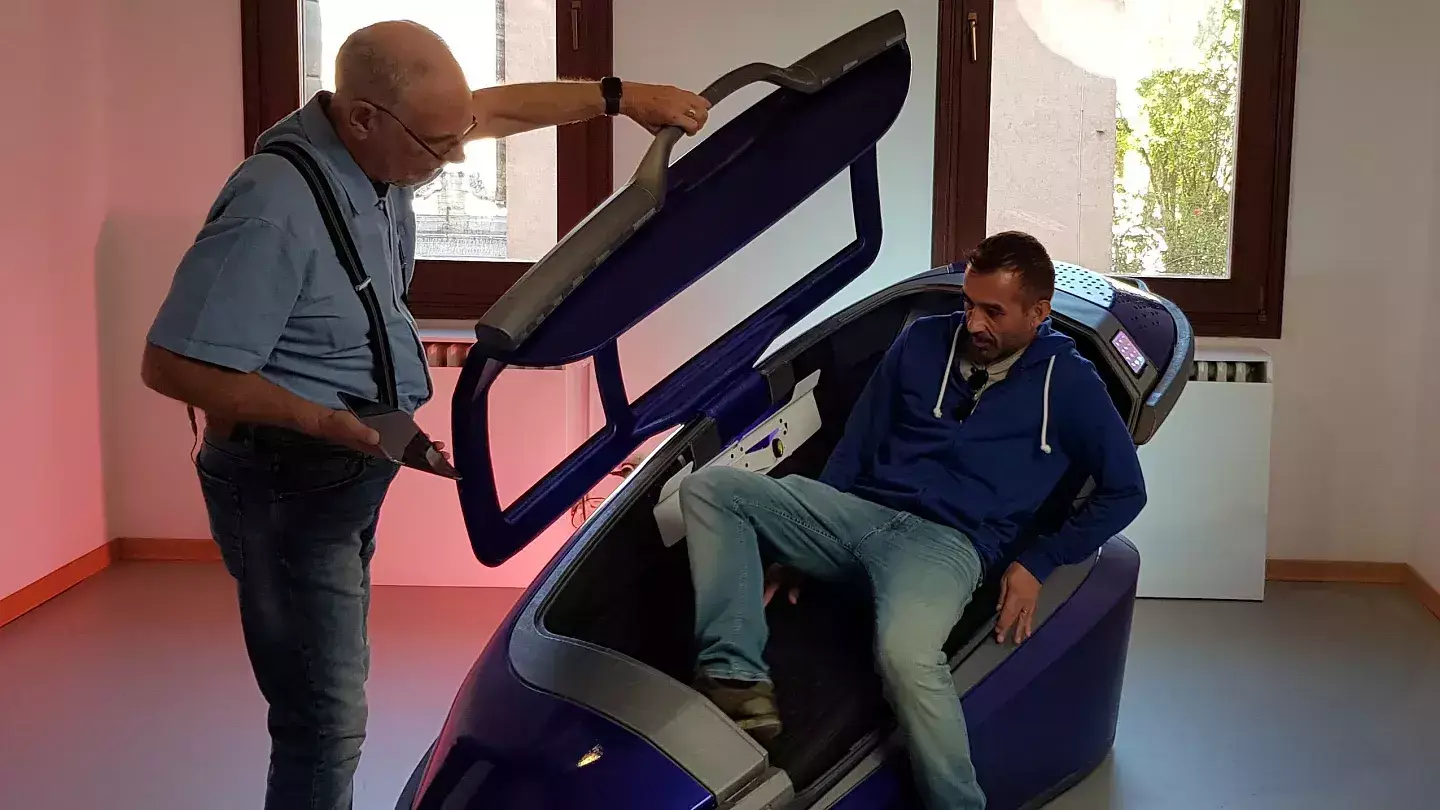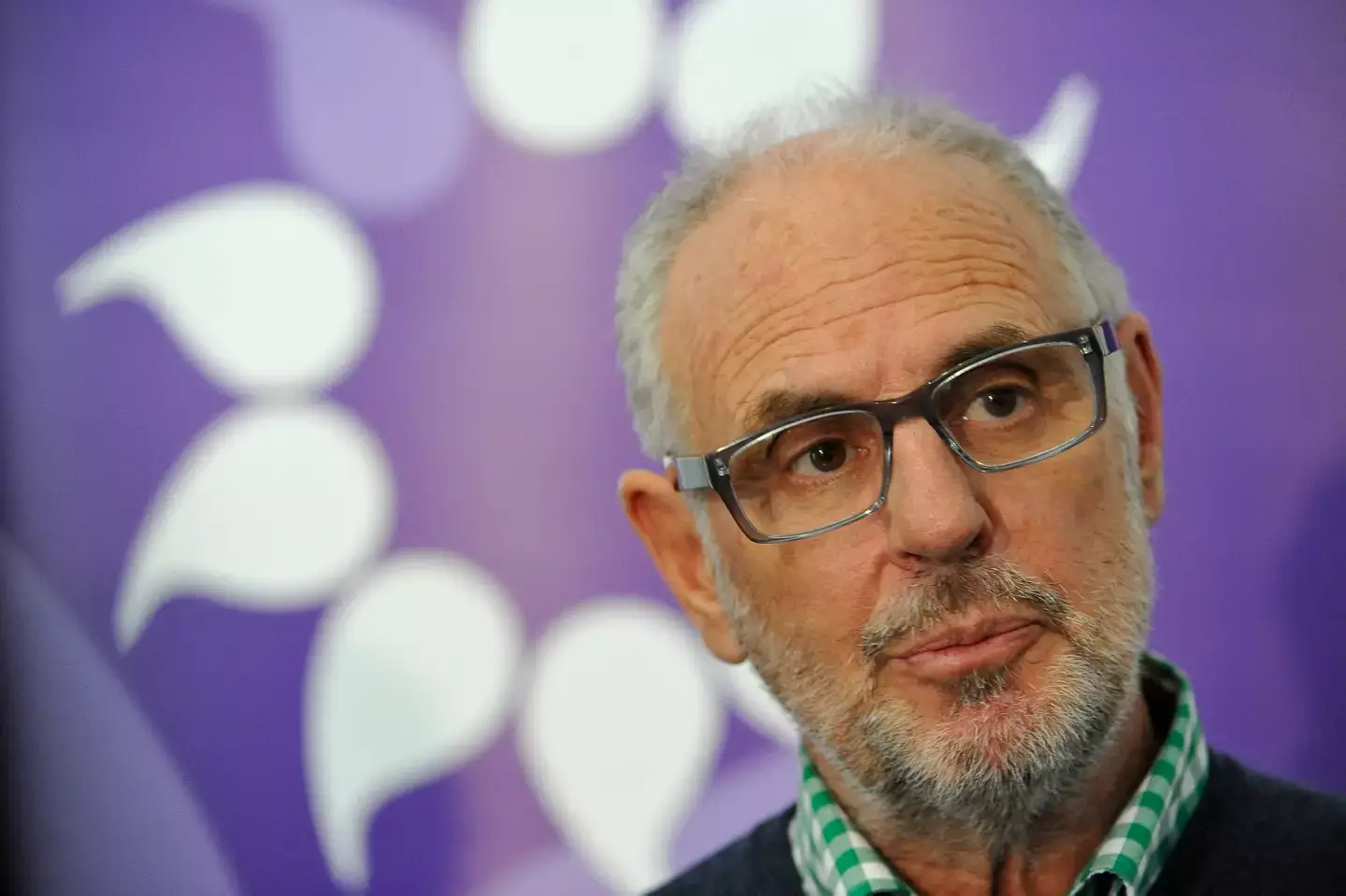
Warning: This article contains discussion around suicide, which some readers may find distressing.
Here is the reason why the futuristic 'suicide pod' is likely to be banned in Switzerland.
Designed by Dr. Philip Nitschke's company, Exit International, the pod - also known as the Sarco pod - was created with the idea of allowing euthanasia patients to end their lives painlessly and without the aid of a doctor.
The controversial invention was unveiled back in 2019 and was set to be used for the first time ever by a patient next week, according to Nitschke.
Advert
However, this plan could be stopped short by Swiss prosecutors, who are looking to ban the pod.

What is the Sarco pod?
A 3D-printed chamber, the Sarco pod is often referred to as the 'Telsa of euthanasia' due to its futuristic look and works by filling the chamber with nitrogen.
As the gas fills the chamber, levels of oxygen will rapidly decrease - meaning that the patient will fall unconscious after one minute. It is reported that it will take around 10 minutes to kill someone, with an emergency stop button should someone change their mind.
The company argues that the pod will allow 'a peaceful, even euphoric death' for the patient.
However, Swiss authorities argue that this is not the case, adding that there is 'no reliable' information to prove the device will work as intended.
The arguments are also backed up by a review from the Massachusetts Institute of Technology (MIT) which outlined that a patient could face a painful death should the pod malfunction.
Swiss prosecutor Peter Sticher has since revealed that Nitschke would face legal repercussions should the device be used, which could see him face up to five years in prison.

"There is no reliable information about the method of killing," he wrote.
"[It is] completely unclear who has control over which mechanical process during the dying process."
Newspaper Blick has also added that operators of the pod could also face criminal consequences.
Euthanasia is currently legal in Switzerland, with Article 115 of the Swiss penal code stating that individuals can assist in another person's suicide as long as the motive for doing so is not 'selfish'.
Companies offering euthanasia are also required to be non-profit organisations and are not allowed to profit off of other people ending their own lives.
The law adds that people seeking to end their own life must also be 'of sound mind'. The country also sees numerous visitors from countries where assisted suicide is illegal seeking to end their own lives.
If you’ve been affected by any of these issues and want to speak to someone in confidence, please don’t suffer alone. Call Samaritans for free on their anonymous 24-hour phone line on 116 123.
Topics: World News, Science, Health